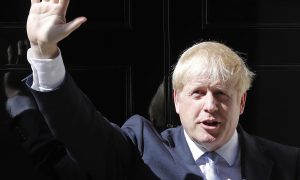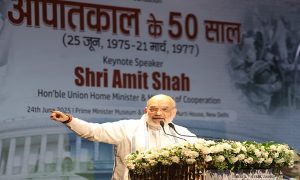Boris Johnson faces his first test as prime minister in Thursday’s by-election to the Brecon and Radnorshire seat in Wales held by the Conservative party, but faces the prospect of losing to the Liberal Democrats and seeing his government’s majority in the House of Commons reduced to one.
The Conservative government has been in power since 2017 with the support of the 10-member Democratic Unionist Party, resulting in a thin majority. Losing the by-election will add pressure on the Johnson government to pass Brexit-related laws when session resumes in September.
The by-election was called after the sitting Conservative MP Chris Davies, was recalled by voters after he was embroiled in an expenses scandal. The local party unit, however, nominated him again for the by-election.
Besides the challenge from Liberal Democrats party, which gained considerably in recent elections to local bodies and to the European parliament, the Conservatives also face a concerted bid from the Brexit party seeking to exploit public ennui over the delay in leaving the EU since the 2016 referendum.
Seeking to consolidate his position as prime minister, Johnson has been travelling to other countries in the UK – Scotland, Wales and Northern Ireland – to sell his plan to leave the EU on October 31 without an agreement, if necessary.
But the plan has been met by mounting criticism across political parties. The Bank of England also cautioned about the adverse impact of a no-deal Brexit, as the pound continued to fall due to the growing prospect of the eventuality.
EU officials in Brussels have already ruled out re-negotiating the withdrawal agreement reached by the Theresa May government. Johnson believes that agreement is ‘dead’ and wants the Brussels to re-negotiate a new one by removing the controversial ‘backstop’ for Northern Ireland.




























 WhatsApp us
WhatsApp us